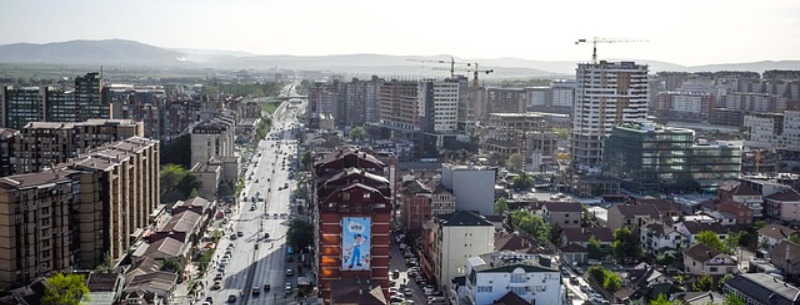Pristina, capital city of Kosovo
A bustling capital with an international vibe, Pristina is filled with personnel from foreign agencies. The capital of Kosovo accommodates them by offering a wide range of Internet cafes, coffee houses, bars and restaurants, and English is widely spoken throughout the city.
The sprawling city lacks the historic charm of many other European capitals, but it does have many delightful open green spaces. One of the best is Germia Park. Families and young people flock there on the weekends to swim in the lake-sized pool, play ball, hike through the dense woods and relax on the grassy spaces. Surrounding the park are a handful of good restaurants, and the nearby cluster-bombed police bunker is worth a visit.
Other sights to explore in the city include the Pristina Ethnographic Museum, the University of Pristina’s library and the Jashar Pasha Mosque.
Termokip slobode in Pristina
Pristina Geographical Location
Pristina is located in the northeast of Kosova near the Goljak mountains and is its largest city.
The approximate population of Pristina is 200,000.
Pristina Language
Albanian and Serbian are the official languages of Kosovo. Bosnian, Turkish, and Roma are also common in certain areas.
Pristina Predominant Religion
- 90% Muslim
- 6% Orthodox Christian
- 3% Roman Catholic
- 1% Protestant
Muslims, predominately of the Sunni denomination, comprise the majority of the population. There have been large financial contributions to Kosovan
Muslim infrastructure by Middle Eastern Charities since 2000.
Pristina Currency
The Euro is the official currency of Kosovo.
Pristina Climate
Pristina has a humid climate but rarely sees uncomfortably hot summers. The remainder of the year is quite cool and winters are cold with precipitation present every month. Spring is the rainiest time of the year.
Pristina Main Attractions
- Germla Park
- Jashar Pasha Mosque
- Statue of Mother Tereza
Other Attraction in Pristina
- Boro Ramiz
- Gracanica Monastery
- Kosovo Caves
- Sultan Fatih Mosque
